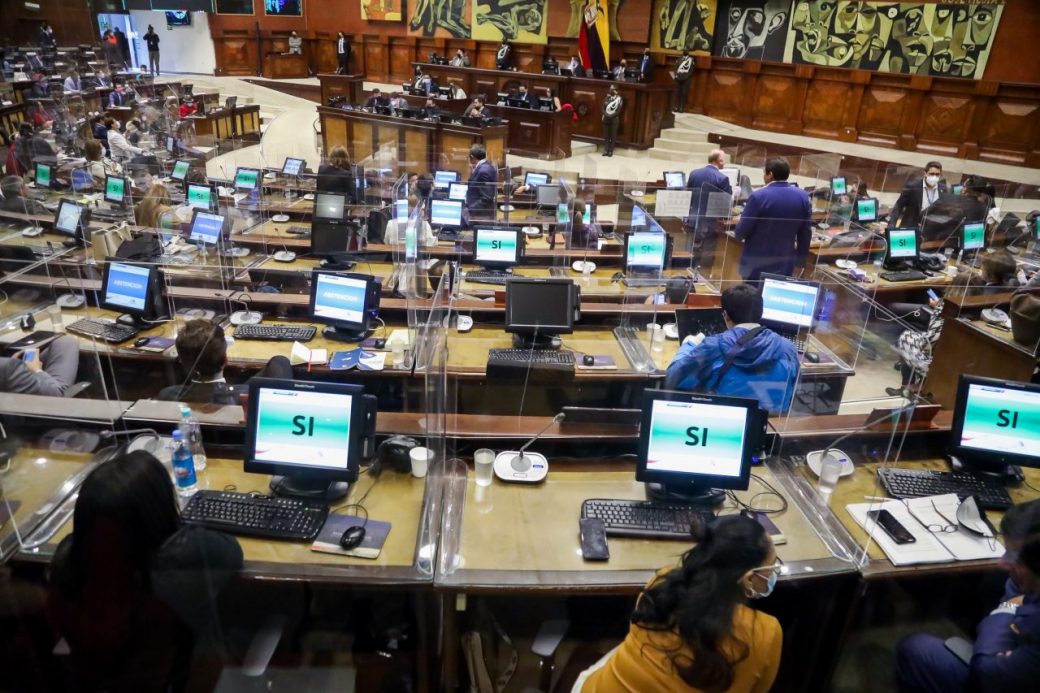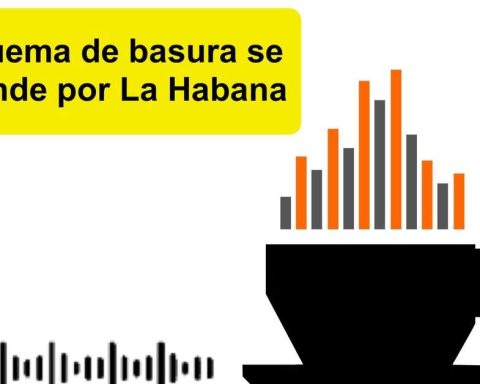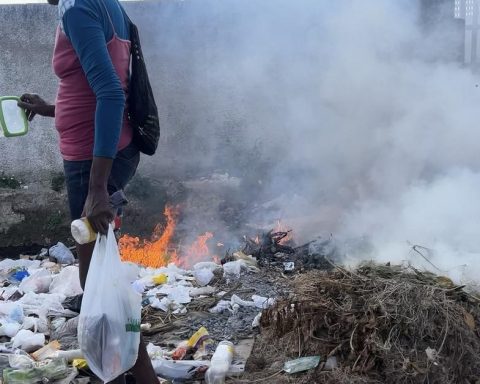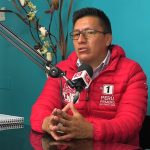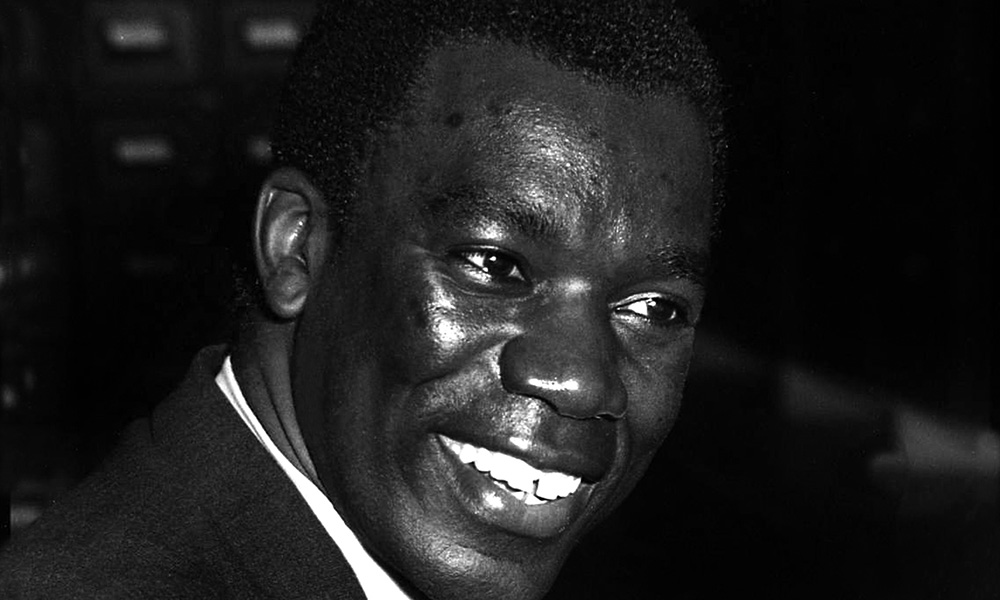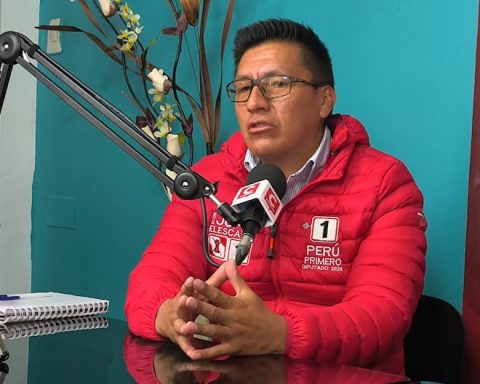The new Social Christian majority, correista and with part of Pachakutik, seeks to remove Llori from the presidency. Time is running out for the Investment Law.
The National Assembly has been immersed for 11 days in a power struggle and without being able to resume the plenary sessions to process bills.
This conflict broke out on February 24, 2022. That day, the president of the legislature, Guadalupe Llori, suspended plenary session No 766, amid shouts from members of Union for Hope (UNES)some of the Christian Social Party (PSC) and the dissidents Pachakutik.
This new majority tried to change the order of the day to vote for the formation of a Multiparty Commission to analyze the work of the Council of Administration of the Assembly (CAL). With this procedure, it is possible to reach the dismissal of the president of the Legislative.
An attempt was made to resume the suspended session, virtually, on February 26, 2022. However, there was no quorum because the 70 assembly members of the Correísta, Social-Christian and part of Pachakutik opposition bloc were not connected.
“With the strategy of sowing confusion and chaos in the Assembly they seek to control it to impose a Citizen Participation Council that appoints the comptroller, prosecutor, prosecutor, and electoral authorities. That is the reason that is hidden behind all the events that are lived”, Llori pointed out in a speech issued on Tuesday, February 1, 2022.
An ultimatum is on the table
The Social-Christian legislator Esteban Torres assured that the declarations of I cried.
“In the event that the members of the CPCCS are censured, they are replaced with substitutes, of whom there are two left because the rest have already been used. The others are filled with the most voted of that election; are there social christians? No,” she said.
During the last week, the president of the Legislative has not summoned plenary sessionswhich prevented the new majority try to move again the creation of the multipartisan evaluation commission.
In this stage, UNES, PSC, and the Pachakutik group Close to Leonidas Iza, they issued a warning: that plenary sessions will be convened on their own.
If the president does not call a Plenary meeting until Tuesday, March 8, 2022, the leaders of UNES, Marcela Holguín, and the PSC, Esteban Torres, indicated that they will push a self summoning to reinstate session 795, where Llori’s address was appealed, and to process the formation of a CAL evaluation commission.
However, for this self-convocation to be valid, 91 adhesion signatures must be collected; but the new majority only has 70 insured.
The pro-government legislator Juan Fernando Flores (CREO) pointed out that the National Agreement Bank (BAN) will not lend itself to it, and the calls established by the President Llori.
In addition, he warned that sanctions will be applied to those legislators who did not give a quorum on Saturday, February 26, as well as those assembly members who, “very brave and fervent, shouted, pushed and insulted.”
“Don’t be fooled, the same ones as always want to disrupt the institutionality of the National Assembly, the same ones as always are the ones who don’t allow this Assembly go ahead and work,” he said.
Is chaos in the Assembly convenient for the Government?
Assemblyman Darwin Pereira, who belongs to the group of dissidents from Pachakutik, asserted that the current scenario of conflict may be the best curtain for the bill to pass without changes. urgent law on economic matters on investments.
The Legislature has less than 20 days left to process the document in two debates within the Plenary. From March 2, 2022, the Economic Development Commission began work on the first report on the initiative.
Pereira stated that the only way out of the crisis in the Assembly is the self summoningbecause there is a risk that I cried convene and suspend the session citing lack of guarantees and in the end prevent the topics from being discussed.
“A Assembly Stagnant is convenient for the Government, because it neutralizes the opposition and there are no meetings in plenary session”, he stressed.
The leader of the Democratic Left caucus, Marlon Cadena, assured that they will not support destabilizing interests and a particular agenda that seeks chaos in the country. In this sense, he was in favor of setting up a dialogue table between all political sectors.
For her part, Marcela Holguín, coordinator of UNES, insisted that the president of the Assembly must summon the legislators to work in plenary and that she must also show transparency in her actions and allow the formation of an ad hoc commission for a evaluation of CAL members. He added that this process should not necessarily end with the dismissal of the authorities.
If the Government’s strategy is to prevent the texts of the bill from being modified, urgent investment lawHolguín added, the UNES caucus will not allow it, because although the term expires on March 24, the caucus is working on a list of modifications.
“We are not going to allow this to go through the ministry of law and we will demand that the president convene the plenary sessions,” he said.
All these struggles take place in a social environment where Assembly it is one of the worst evaluated public institutions by citizens. Each legislator and his team costs around $13,000 per month, but in nine months in office they have approved more than twice the resolutions (without any legal weight) than laws. (JS)
